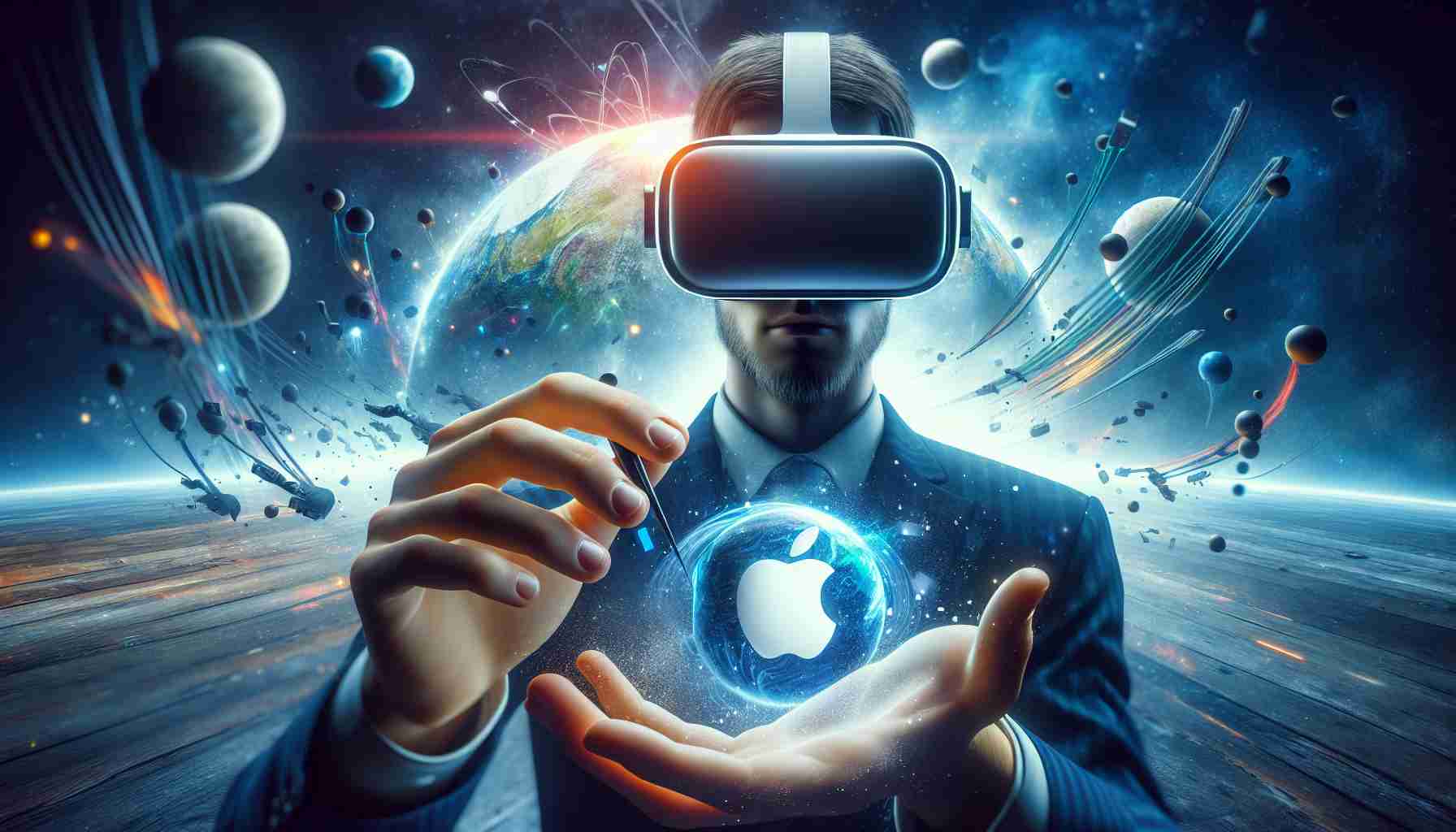Apple Inc. has been grappling with the perception that its best growth days are behind it. However, the tech giant’s latest achievement, Apple Vision Pro – a virtual reality headset – is unlikely to change this view anytime soon.
The company will start accepting orders for Vision Pro on Friday, and Wall Street analysts predict modest sales of this device, which currently doesn’t seem to offer as appealing features as the flagship iPhone. The lack of a clear growth driver for Apple is a key reason why its market capitalization has fallen below that of Microsoft Corp, considered one of the major beneficiaries of artificial intelligence.
“It is difficult to ask someone to pay $3,500 for a product that has limited content and doesn’t differ much from what is available on a smartphone. This means that Vision Pro will remain niche for the next few years,” said Denny Fish, a fund manager in the technology sector at Janus Henderson.
Expectations for this device on Wall Street are moderate, forecasting little impact. UBS expects to ship between 300,000 and 400,000 units this year. In the best-case scenario, the device could contribute $1.4 billion in revenue and a few cents in earnings per share. However, as analyst David Vogt stated, this is “insignificant” for a company that generated $383 billion in sales in fiscal year 2023.
While Apple earned a reputation as one of the Magnificent Seven of 2023, growing almost 50% and achieving record-breaking numbers in December, this year has had a difficult start. Its stocks have dropped about 3% this month, while the Nasdaq 100 index decreased by less than 1%. Among the seven mega-caps that led market growth last year, only Tesla Inc. performed worse.
The modest expectations for Vision Pro reflect the challenges faced by Apple, which has reported four consecutive quarters of revenue decline – its worst streak since 2001. In Netflix Inc., a highly regarded competitor in streaming services, they found a rival that announced it has no plans to launch an app on Vision Pro.
While Apple is expected to return to growth in 2024, with an estimated 3% increase, it is only half the expansion anticipated for the entire S&P 500 tech sector in the current fiscal year according to Bloomberg Intelligence data. In comparison, Microsoft’s revenue is predicted to grow by 15% in this fiscal year.
Given Apple’s higher valuation, especially amidst uncertainties related to antitrust considerations, this growth rate is not too inspiring for investors. Based on Bloomberg data, with a forecasted 27 times earnings ratio, this is a higher price than the Nasdaq 100 index and the 10-year average.
Apple’s stocks have received at least three downgrades this year, and Wall Street’s conservative stance on the company contrasts with other mega-caps. Only 62% of firms recommend buying Apple shares, compared to rates above 85% for Microsoft, Amazon.com Inc., Alphabet Inc., Nvidia Corp., and Meta Platforms Inc.
Of course, Apple still has its enthusiastic supporters who counter growth concerns by highlighting its strong cash flow and share buybacks. The company’s stocks have often been perceived as a safe haven in times of uncertainty or market turmoil.
Bank of America upgraded Apple shares from “neutral” to “buy” on Thursday, predicting a strong cycle of iPhone upgrades driven by the need for the latest artificial intelligence capabilities in the years 2024-2025.
“It is difficult to bet against Apple considering its cash flow and customer loyalty, and the stocks do not seem too expensive considering the quality of the company,” said Tom Plumb, manager of the Plumb Balanced Fund. “However, I believe that until the introduction of something that will excite growth in revenues, the stocks will remain in a sideways trend, and visibility regarding the next big breakthrough is very low.”
FAQ Section:
The source of the article is from the blog combopop.com.br
